Phonics practice Phonics Worksheets for 6-Year-Olds
12 filtered results
-
From - To
Discover engaging Phonics Worksheets for 6-Year-Olds designed to enhance reading skills and foster a love for learning. Our expertly crafted activities help young learners build foundational phonics knowledge through playful exercises that include letter sounds, word recognition, and pronunciation practice. Each worksheet is tailored to keep your child motivated and focused while making significant strides in their education journey. Perfect for both classroom settings and at-home practice, these phonics worksheets ensure that children grasp essential reading concepts in a fun and effective way. Equip your little reader for success today with our top-quality phonics practice resources!
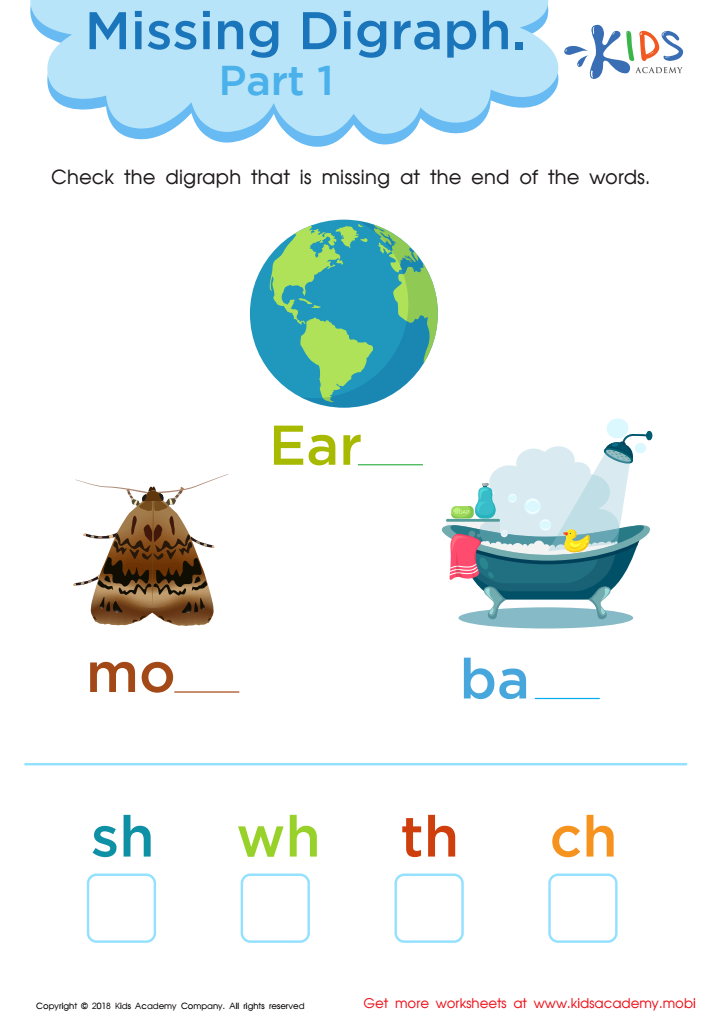

Missing Digraph: Part 1 Worksheet
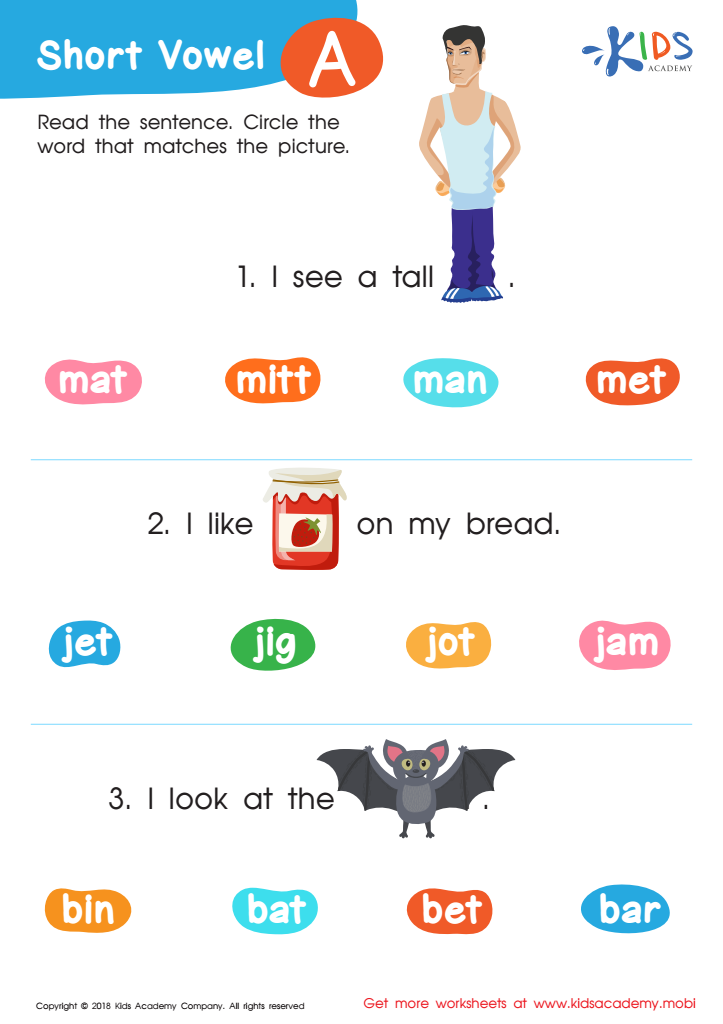

Short Vowel /a/ Worksheet
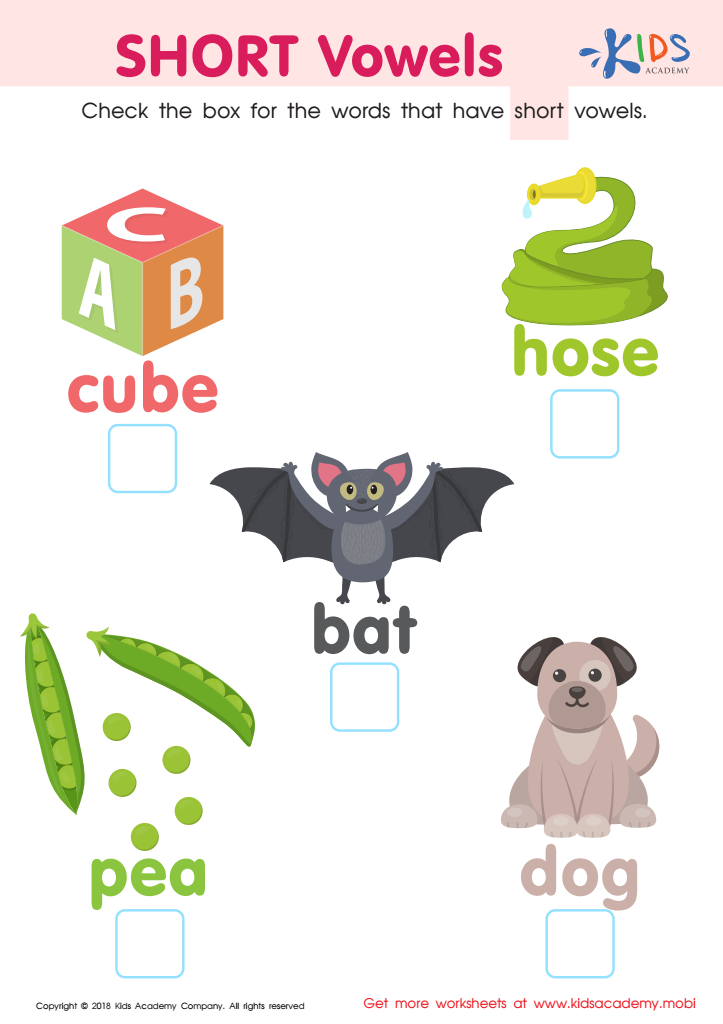

short vowels Worksheet
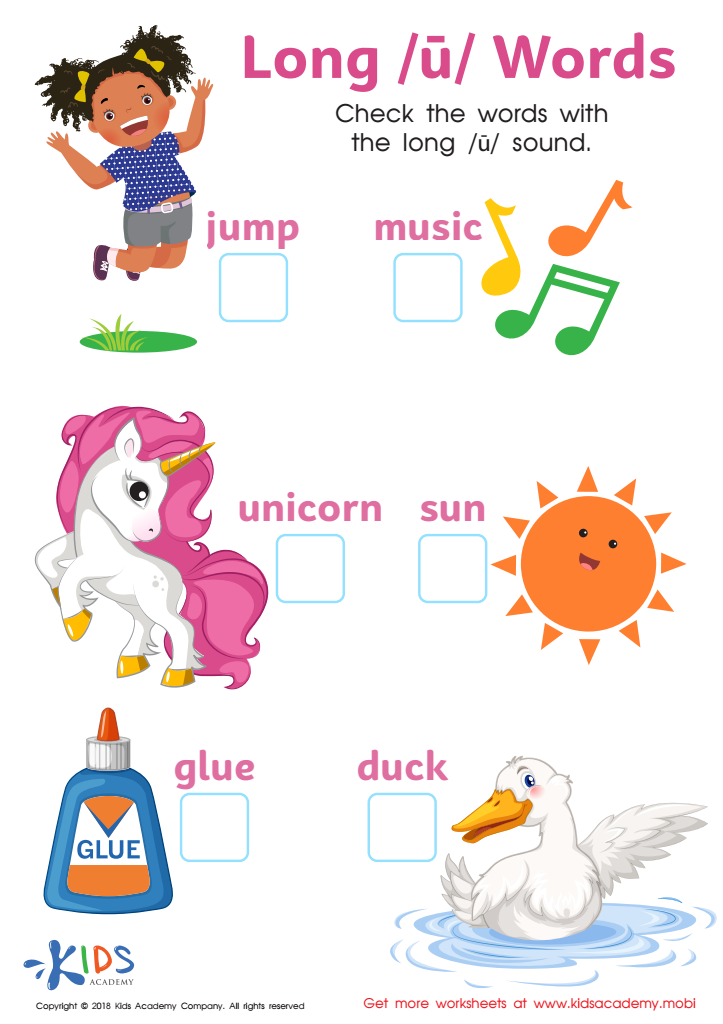

Long U Words Reading Worksheet


Twin Onset Worksheet
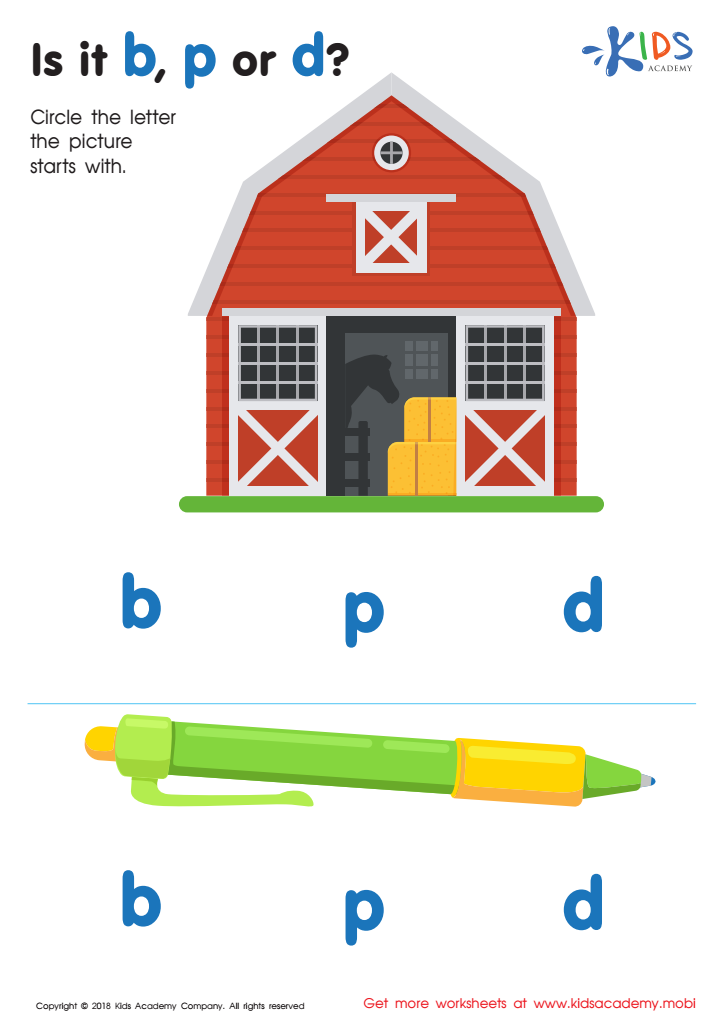

Is it b, p or d? Worksheet


Short Vowel Eggs Worksheet
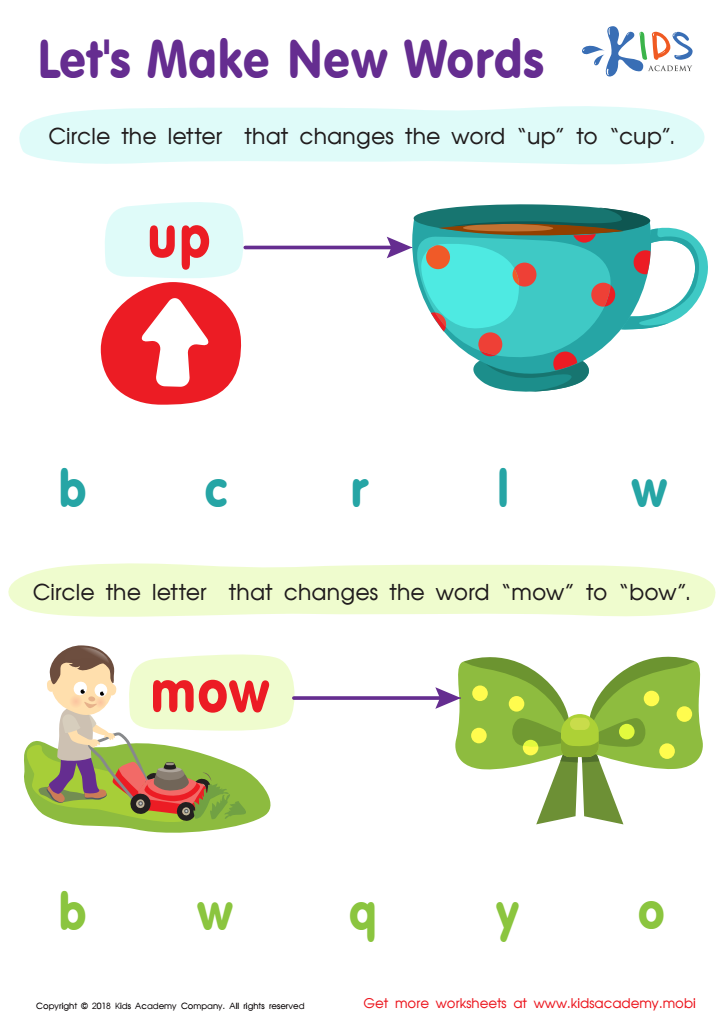

Let's Make New Words Worksheet


Words with sound p Reading Worksheet


Words with sound f Reading Worksheet
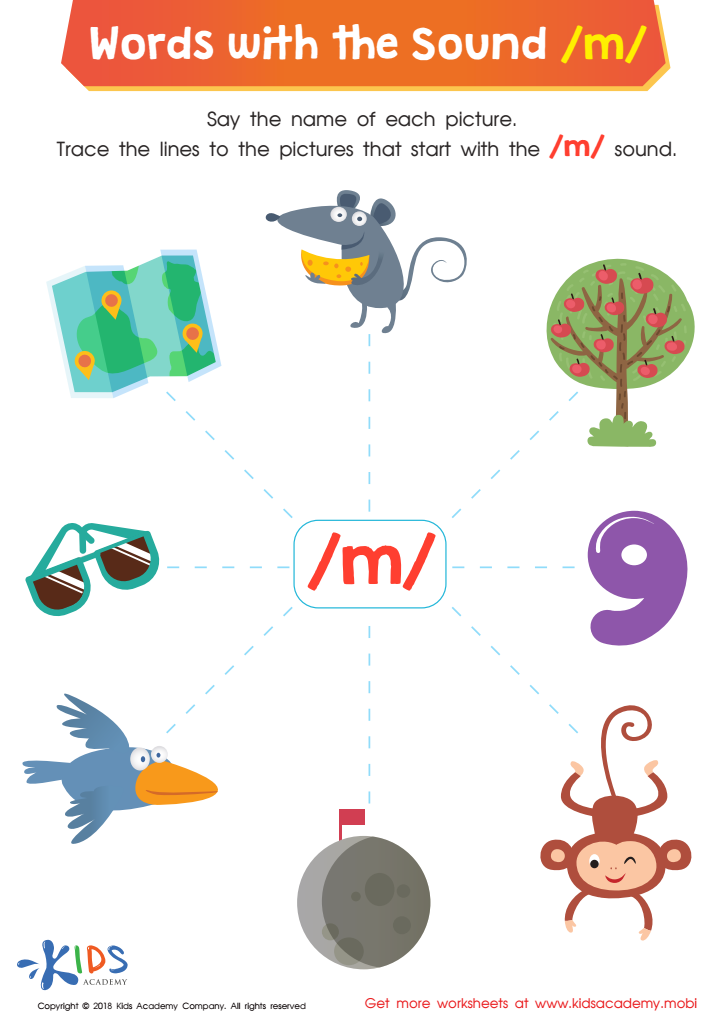

Words with Sound M Reading Worksheet
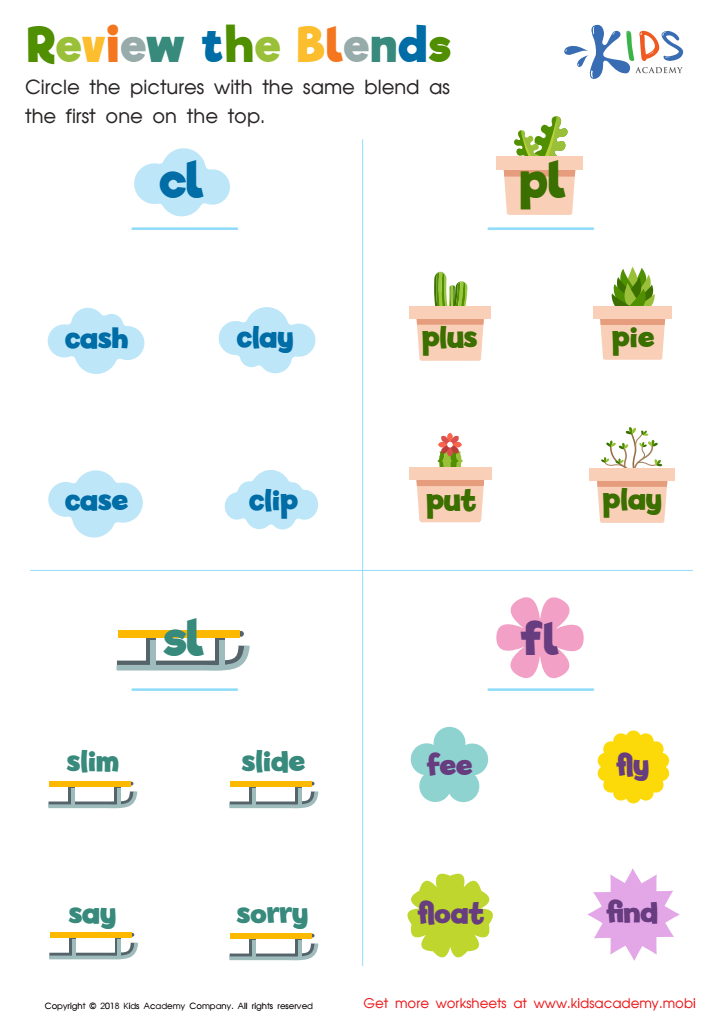

Review the Blends Worksheet
Phonics is a crucial component in early literacy development, especially for 6-year-olds who are often just beginning their journey as independent readers. Structured phonics practice helps children understand the relationship between letters and their corresponding sounds. This understanding is foundational for decoding words, which is an essential skill for fluent reading.
By engaging in phonics practice, children develop the ability to recognize patterns in words, such as common prefixes, suffixes, and vowel combinations. This knowledge not only enables them to read more accurately but also improves their spelling and writing skills. Additionally, a strong phonic foundation fosters a child's confidence in reading, reducing frustration and making reading a more enjoyable and rewarding experience.
For parents and teachers, incorporating phonics into daily practice provides a guided and systematic approach to literacy instruction. This method has been shown to be effective in numerous studies, demonstrating significant improvements in reading ability and overall comprehension. Beyond the academic benefits, phonics practice encourages children to develop a love for reading, which can influence their lifelong learning habits.
Moreover, supporting phonics at this young age creates a collaborative environment where parents and teachers can work together, ensuring consistency and reinforcement both at home and in the classroom. In summary, investing time and effort into phonics for 6-year-olds sets the foundation for successful reading, effective communication, and a positive attitude toward lifelong learning.

 Assign to My Students
Assign to My Students




















